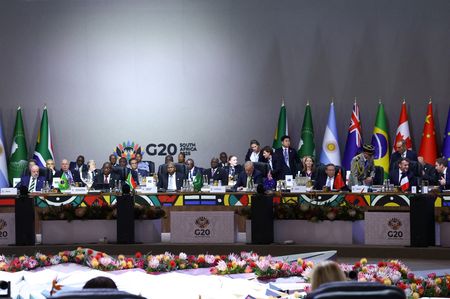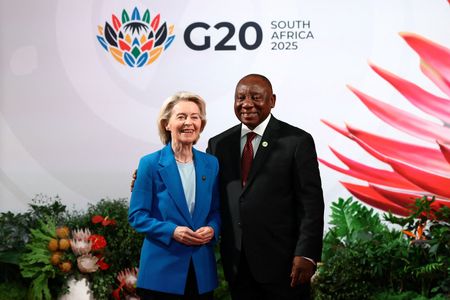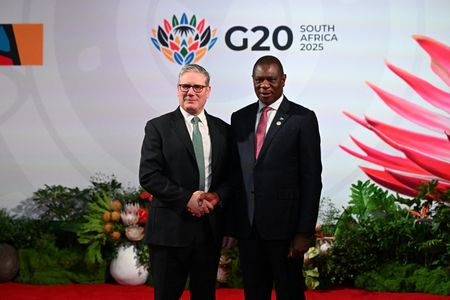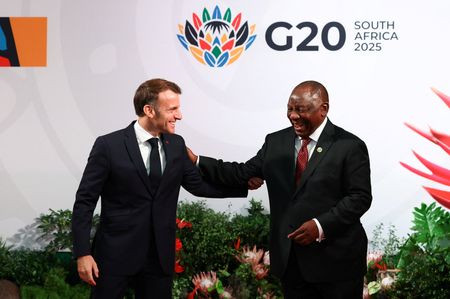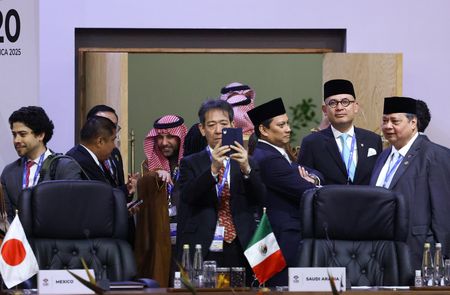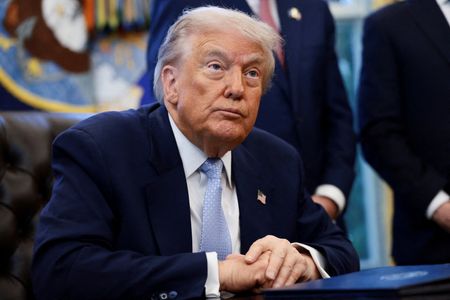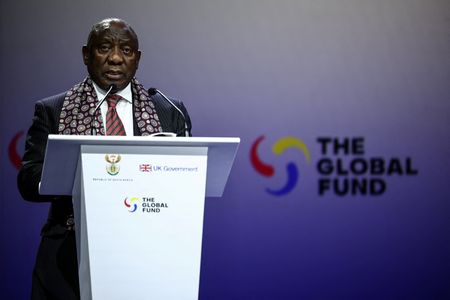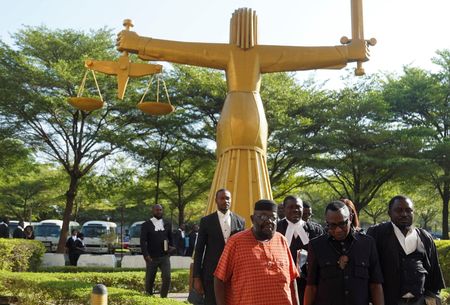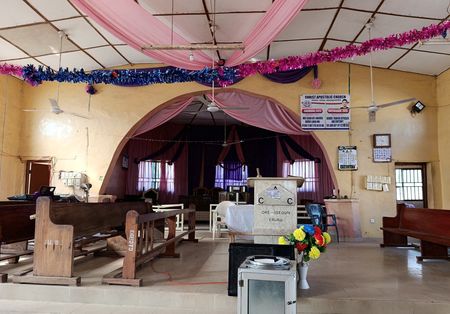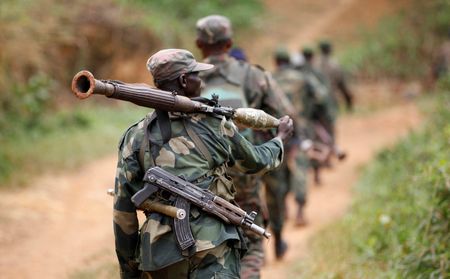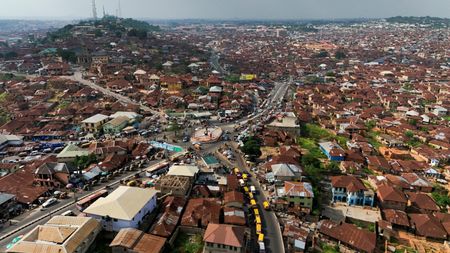By Tim Cocks and Nqobile Dludla
JOHANNESBURG (Reuters) -A Group of 20 leaders’ summit in South Africa adopted a declaration addressing the climate crisis and other global challenges on Saturday after it was drafted without U.S. input in a move a White House official called “shameful”.
The declaration, using language to which Washington has been opposed, “can’t be renegotiated,” South African President Cyril Ramaphosa’s spokesperson told reporters, reflecting strains between Pretoria and the Trump administration over the event.
“We had the entire year of working towards this adoption and the past week has been quite intense,” the spokesperson said.
Ramaphosa, host of this weekend’s gathering of Group of 20 leaders in Johannesburg, had earlier said there was “overwhelming consensus” for a summit declaration.
G20 envoys drew up a draft leaders’ declaration on Friday without U.S. involvement, four sources familiar with the matter said.
The declaration used the kind of language long disliked by the Trump administration: stressing the seriousness of climate change and the need to better adapt to it, praising ambitious targets to boost renewable energy and noting the punishing levels of debt service suffered by poor countries.
TRUMP REJECTS SOUTH AFRICA’S G20 AGENDA
The mention of climate change was a snub to U.S. President Donald Trump, who doubts the scientific consensus that global warming is caused by human activities. U.S. officials had indicated they would oppose any reference to it in the declaration.
In opening remarks to the summit, Ramaphosa said: “There’s been overwhelming consensus and agreement that one of the other tasks we should undertake right at the beginning is to … adopt our declaration.”
He thanked all delegations who had worked together with South Africa “in good faith to produce a worthy G20 outcome document”.
“We should not allow anything to diminish the value, the stature and the impact of the first African G20 presidency,” he continued.
Trump said U.S. officials would not attend the summit because of allegations, widely discredited, that the host country’s Black majority government persecutes its white minority.
The U.S. president has also rejected the host nation’s agenda of promoting solidarity and helping developing nations adapt to weather disasters, transition to clean energy and cut their excessive debt costs.
The boycott had initially seemed to put a dampener on Ramaphosa’s plans to trumpet South Africa’s role in promoting multilateral diplomacy.
The United States will host the G20 in 2026 and Ramaphosa said he would have to hand over the rotating presidency to an “empty chair”. The South African presidency has rejected a U.S. offer to send the U.S. charge d’affaires for the G20 handover.
(Reporting by Tim Cocks, Nqobile Dludla, Anathi Madubela, Alexander Winning, Nellie Peyton, Sfundo Parakozov and Sisipho Skweyiya;Editing by Ros Russell, Kevin Liffey, William Maclean)

